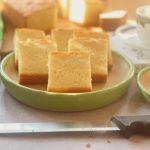Becoming a master baker is a journey filled with delightful discoveries and occasional setbacks. In this comprehensive guide, we will not only explore the key principles to follow in your quest to master baking but also shed light on why our baked goods sometimes don’t turn out as expected. So, let’s embark on this flavorful adventure!
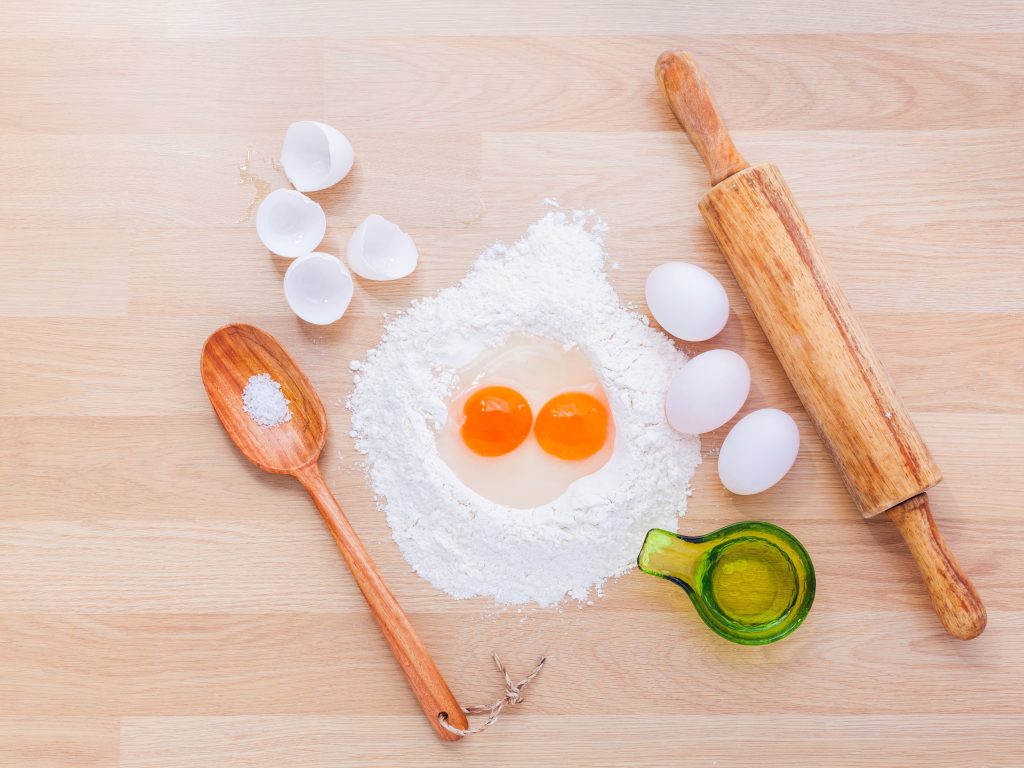
1. Understand the Basics: The Ingredients
Baking begins with understanding the role of each ingredient:
**Flour:** It’s the foundation, providing structure. The type of flour (all-purpose, bread, cake) affects texture.
**Sugar:** Beyond sweetness, it adds moisture and aids in browning.
**Fats (Butter, Oil, Shortening):** These contribute tenderness and flavor, and their state (melted or softened) can impact the texture.
**Eggs:** Besides binding, they add moisture and structure. Using large or extra-large eggs can make a difference.
**Leavening Agents (Baking Powder, Baking Soda, Yeast):** They create the rise. Baking soda needs an acid (like yogurt) to activate.
**Liquids (Milk, Water, Juice):** Control consistency and flavor. Different liquids can yield distinct results.
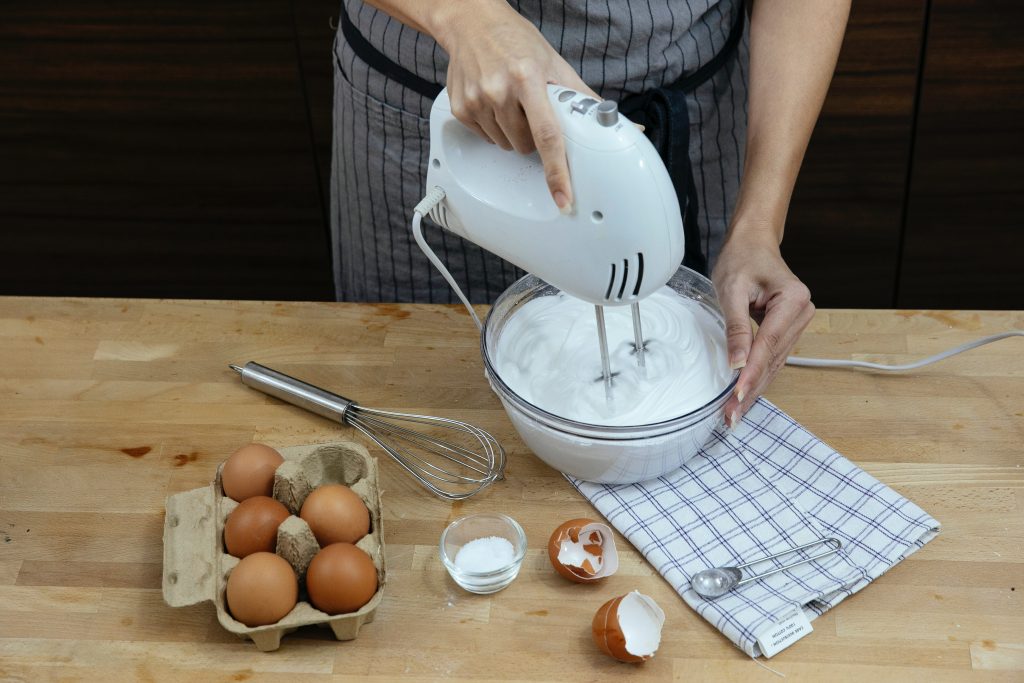
2. Master the Mixing Methods
Successful baking often relies on appropriate mixing techniques:
**Creaming:** Creaming fat and sugar together creates tiny air pockets for a light, fluffy texture (common in cookies).
**Muffin Method:** Separately combine wet and dry ingredients, then gently fold together (found in muffins and quick bread).
**Biscuit Method:** Cut cold fat into dry ingredients for a flaky texture (typical for biscuits and scones).
**Yeast-Rising:** Use yeast to ferment dough, producing carbon dioxide for bread and rolls.
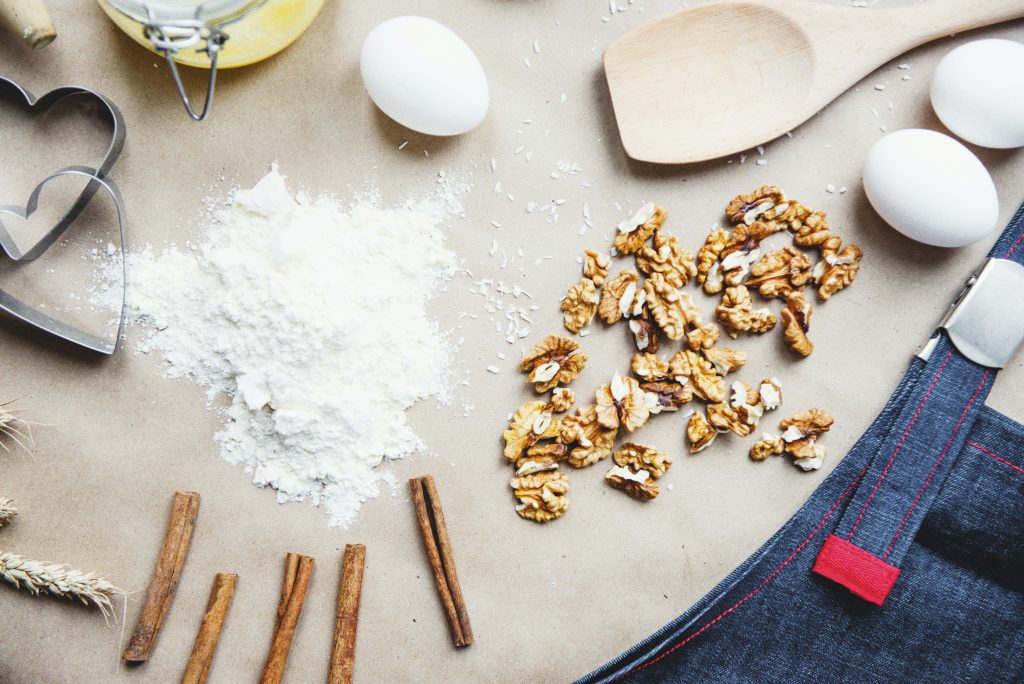
3. Leavening Agents: The Magic Behind the Rise
Understanding how leavening agents work is essential:
**Baking Soda:** It requires an acid (like yogurt or vinegar) to activate and produce carbon dioxide gas, making dough rise.
**Baking Powder:** Contains both an acid and a base, activating when combined with moisture and heat, resulting in a rise.
**Yeast:** It ferments sugars in the dough, creating carbon dioxide gas that causes the dough to expand and rise.

4. The Oven: Your Baking Laboratory
Your oven plays a crucial role in the baking process:
**Preheating:** Always preheat your oven to the specified temperature to ensure even baking.
**Oven Thermometer:** Use one for accurate temperature readings, as oven thermostats can be inaccurate.
**Positioning:** Adjust oven racks to the correct position for your baking vessel to ensure even heat distribution.
**Baking Time:** Follow recipe instructions, but use visual cues (golden brown color) to gauge doneness.
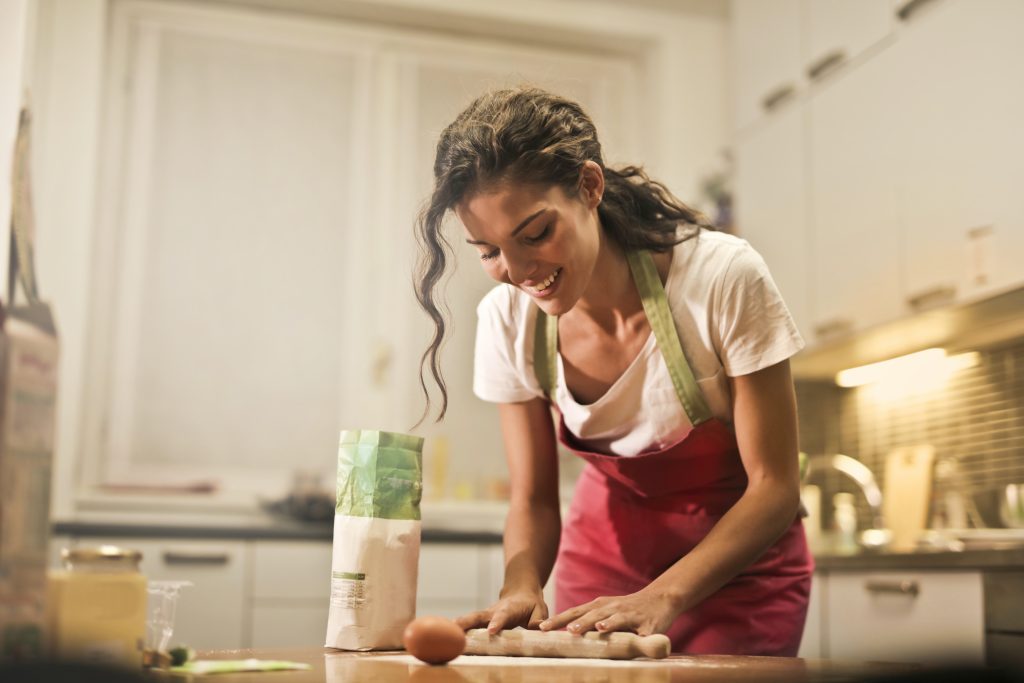
5. Patience and Precision
Baking requires meticulous attention to detail:
**Measure Accurately:** Invest in quality measuring cups and spoons, and level off dry ingredients for precision.
**Follow Recipes:** Stick to instructions for consistent results. Even small deviations can affect the outcome.
**Cooling:** Allow your baked goods to cool properly before devouring them, as they continue to cook slightly outside the oven.

Baking: A Delicious Science Anyone Can Master
6. Troubleshooting Common Baking Issues
Even experienced bakers encounter challenges:
**Flat Cookies:** Check your leavening agents; expired or incorrectly measured agents can cause this.
**Dense Cake:** Overmixing can lead to a dense texture. Mix until just combined.
**Sunken Bread:** Ensure your yeast is active and follow rising times accurately. Under-risen dough can collapse.

Baking: A Delicious Science Anyone Can Master
7. Learning Resources
Expand your baking knowledge with these resources:
**YouTube Tutorials:** Visual guides to baking techniques.
**Cookbooks:** Explore recipes and expert tips.
**Online Classes:** Join virtual baking courses to learn from professionals.

Baking: A Delicious Science Anyone Can Master
8. Embrace the Joy of Baking
Remember that baking is not just science; it’s an art form:
**Experiment:** Modify recipes based on your preferences and get creative with flavors and textures.
**Share:** Spread the joy by sharing your creations with loved ones. Baking can be a wonderful way to connect with others.

Baking: A Delicious Science Anyone Can Master
Why Baked Goods Sometimes Don’t Turn Out as Expected?
Baking is both an art and a science, and several factors can lead to less-than-perfect results:
Inaccurate Measurements: Even a small discrepancy can throw off your recipe.
Ingredient Substitution: Substituting ingredients can alter the texture and taste.
Overmixing: Overworking the dough or batter can lead to tough results.
Oven Temperature: An inaccurate oven temperature can result in under or overcooked items.
Expired Leavening Agents: Check the expiration dates of your baking powder and baking soda.
Not Following Instructions: Skipping steps or not adhering to rising times can affect the outcome.
Environmental Factors: Humidity, altitude, and temperature can impact baking.

Baking: A Delicious Science Anyone Can Master
In conclusion, becoming a master baker is achievable with dedication and practice. By understanding the science behind baking and following these key principles, you can unlock the secrets of creating delightful baked goods. And when things don’t go as planned, remember that baking is a delicious experiment, and learning from your mistakes is part of the journey. So, put on your apron, gather your ingredients, and enjoy the sweet adventure of baking! Happy baking!


